baidu
Latest
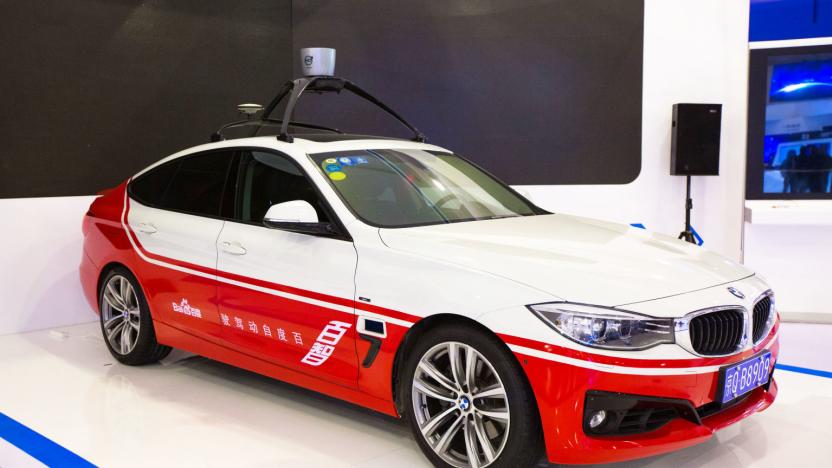
Baidu teams with ride-hailing service to fast track self-driving cars
If Chinese search giant Baidu is going to fulfill its dreams of building a self-driving car platform, it needs maps accurate enough that vehicles can safely get from point A to point B. Thankfully, it has a solution: the company has just forged a partnership with the state-backed ride-hailing service Shouqi. Baidu will supply Shouqi with the tools it needs for both its existing business and driverless cars, including map services, its Apollo autonomous platform and its conversational AI platform DuerOS. In return, Shouqi will supply Baidu with high-precision maps.
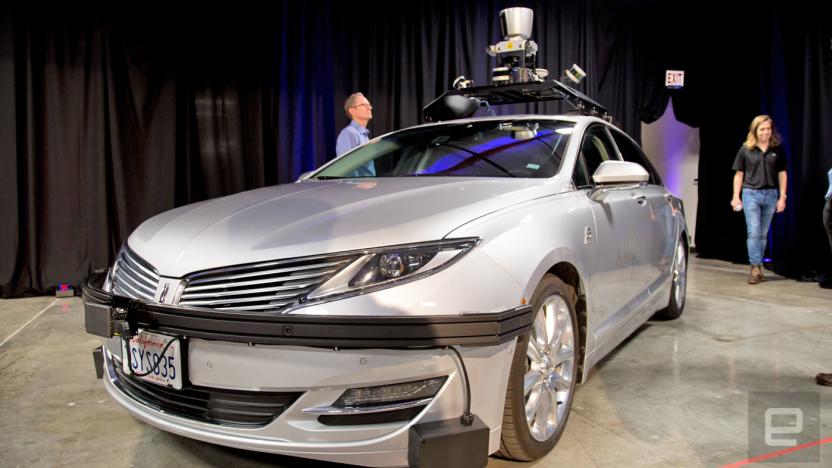
Baidu updates its open-source autonomous driving platform
It's odd that the search engine company known as the "Google of China" says that its open-source autonomous driving platform Apollo is the "Android of the auto industry." But that's exactly what Baidu is trying to be with Apollo and it's racking up partners worldwide (including Ford, Daimler, NVIDIA and others) to make it a reality.
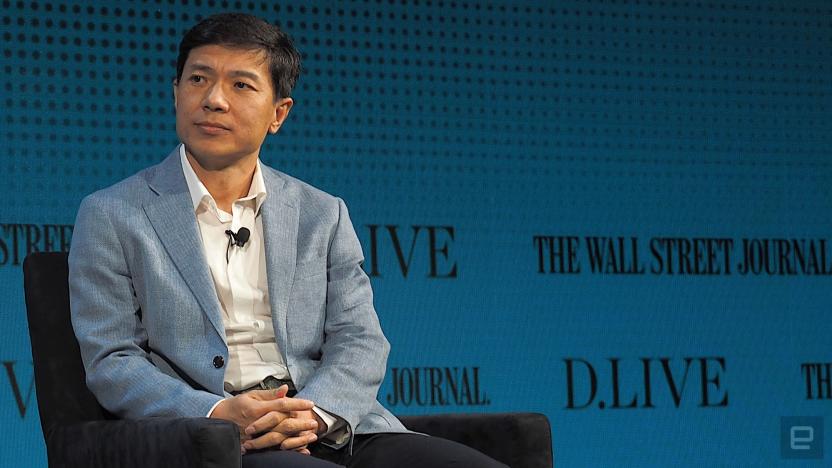
Baidu wants to launch a self-driving bus in China next year
Baidu, China's search giant, is planning to release a fully self-driving bus in China next year, said CEO Robin Li in an interview at Wall Street Journal's D.Live conference. The bus will run on a designated route and Baidu is working with a Chinese company to make it.
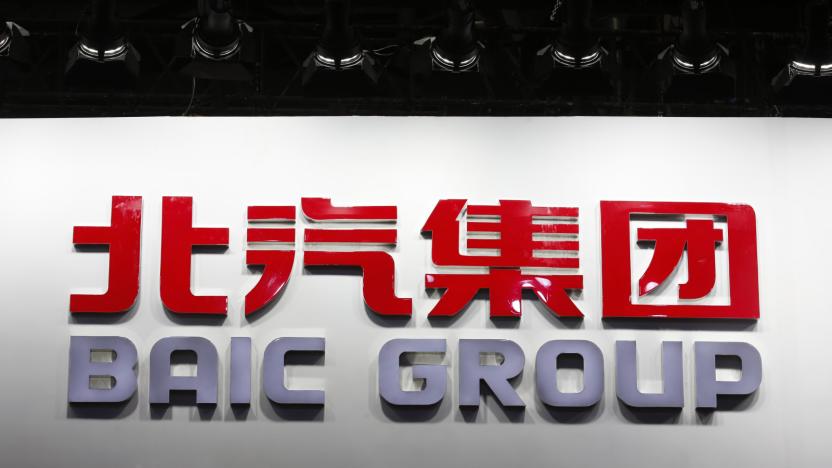
Baidu plans to start mass-producing autonomous vehicles around 2019
Like its US counterparts, Chinese internet titan Baidu has been working on autonomous vehicle research for years. After a failed partnership with BMW, Baidu opened itself up to teaming up with other companies, notably bringing on NVIDIA to power its Apollo self-driving car program. The internet giant has another partner now: Chinese automaker BAIC, which will pair its cars with Baidu's tech to start mass production of level three autonomous vehicles around 2019, followed by L4 vehicles around 2021.

Meet Alice: The virtual assistant from Russian search giant Yandex
Russian search giant Yandex has unveiled its virtual assistant Alice. Like Alexa or Siri, Alice provides users with directions, weather forecasts and news as well as incorporating access to other Yandex offerings like its music service. And, of course, it does all of this in Russian, which Yandex points out isn't an easy language for AI to tackle. "Speech recognition is especially challenging for the Russian language due to its grammatical and morphological complexities," Yandex it said in a statement. "According to word error rate measurements, SpeechKit provides world-best accuracy for spoken Russian recognition, enabling Alice to understand speech with a near human-level accuracy."

America’s cash-free future is just around the corner
Shake Shack's next burger joint at Astor Place in NYC doesn't want your money -- at least not the physical variety. In an effort to reduce the "friction time" between paying for your meal and eating it, the company plans to replace human cashiers for automated kiosks which won't accept actual bills and coins, only cards. This move is part of a global trend away from cash-based economies and towards Star Wars-style credits. But could such a monetary revolution actually benefit all Americans? Don't bet on it.

The missing trade war against China’s digital protectionism
Earlier this summer, the Trump administration took its first concrete step toward what some think could turn into an all-out trade war with China. The product that it put an import tax on? Aluminum foil. Like the Obama administration, which took action against China's subsidies to auto parts manufacturers and withholding of rare earth exports that are crucial to tech manufacturing, Trump seems focused on physical goods. But China's main trade barrier against the US isn't on manufactured or raw goods; rather, it targets Google, Facebook, Microsoft, and the bulk of the multi-billion-dollar, fast-growing tech sector. Many of these companies have been facing market access issues in China for years due to the blocking or censoring of their digital content or tools, likely costing them billions in potential revenue.
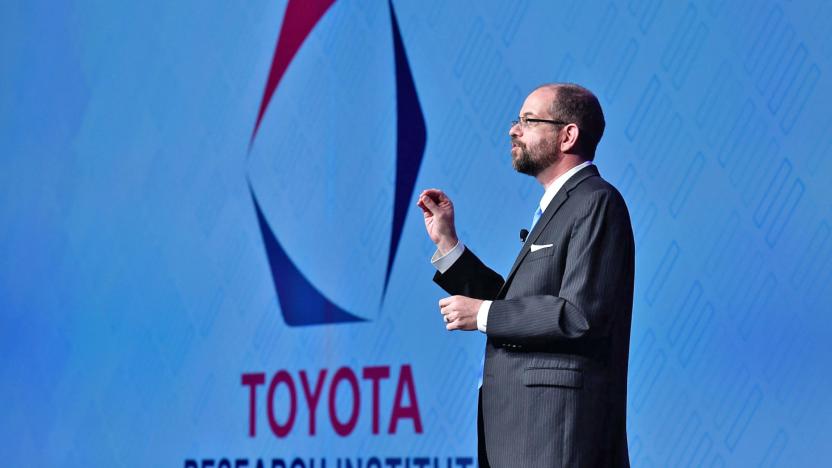
Toyota's $100 million fund will back AI, robotics startups
Today, Toyota announced the launch of Toyota AI Ventures, a new venture capital subsidiary focused on startup tech companies working on artificial intelligence. The fund has received an initial $100 million from the Toyota Research Institute (TRI), an AI-, robotics- and autonomous car-focused initiative created in 2015.
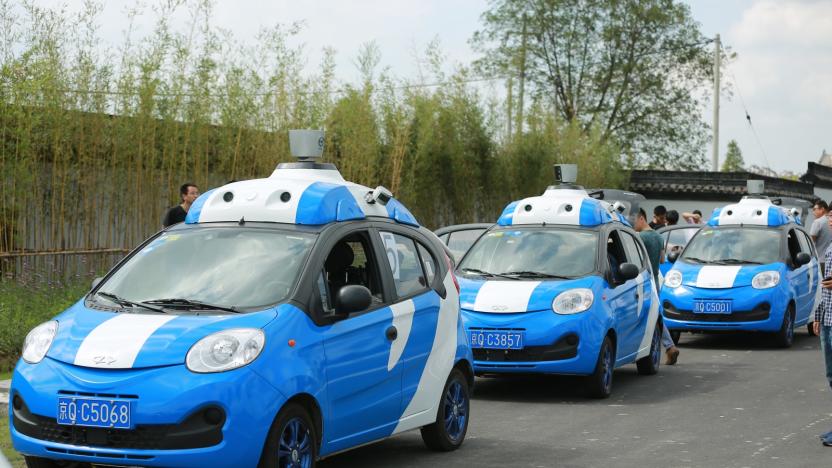
Baidu's latest autonomous car road test may have been illegal
China's largest search engine provider, Baidu, has gotten itself into some trouble. The company has been developing self-driving vehicles and during a conference this week, it aired a live video chat of its product in action. During the video chat, Baidu's CEO Robin Li sat in a self-driving car as it navigated its way through Beijing traffic. But the police weren't too thrilled with the stunt and said they were investigating whether any laws were broken.

NVIDIA will power self-driving cars in China
NVIDIA has already forged self-driving alliances with big car manufacturers like Audi, Toyota and Volvo, but its latest is a particularly big deal -- at least if you live in China. The chip designer has unveiled a partnership with Chinese internet giant Baidu that will see the two work together to boost the use of AI. Most notably, NVIDIA's Drive PX tech will find its way into Baidu's Apollo self-driving car platform and autonomous vehicles from "major" Chinese firms. The automotive pact is important enough that Baidu chief Robin Li traveled to the event in one of his company's driverless rides -- even though it was against the law.

China cracks down on celebrity gossip social media accounts
The fans of 60 gossip bloggers on China's social media platforms, including ones owned by Tencent and Baidu, will have to get their daily fix elsewhere. Chinese websites and tech titans have shuttered 60 accounts focusing on celebrity gossip after authorities told them in a meeting that they must take steps to keep those kinds of pages in check. According to Reuters, a post on the Beijing Cyberspace Administration's social media account revealed the meeting and said that it expects websites in the country to "adopt effective measures to keep in check the problems of the embellishment of private sex scandals of celebrities, the hyping of ostentatious celebrity spending and entertainment and catering to the poor taste of the public."

AI is already beating us at our own game
Although modern AI systems still have trouble deciding whether or not to flip that stranded tortoise in their path, they're already outpacing the intellectual capabilities of their creators in a wide variety of fields. From beating grandmaster Go players to outguessing cardiac surgeons, lipreading to audio transcription, neural networks and machine learning have already surpassed humans -- and that list is only going to grow longer.

Baidu’s text-to-speech system mimics a variety of accents ‘perfectly'
Chinese tech giant Baidu's text-to-speech system, Deep Voice, is making a lot of progress toward sounding more human. The latest news about the tech are audio samples showcasing its ability to accurately portray differences in regional accents. The company says that the new version, aptly named Deep Voice 2, has been able to "learn from hundreds of unique voices from less than a half an hour of data per speaker, while achieving high audio quality." That's compared to the 20 hours hours of training it took to get similar results from the previous iteration, for a single voice, further pushing its efficiency past Google's WaveNet in a few months time.

Baidu AI helps parents find their abducted son 27 years later
Facial recognition tech has loads of application other than the creepy ones that put your privacy at risk. In China, for instance, it has helped a couple find their son 27 years after he was abducted. Fu Gui thought it was strange that he only had vague memories of his childhood, so he uploaded a photo taken when he was 10 years old to a website called Baobeihuijia, which translates to "Baby Come Home." Little did he know that his parents would also upload his childhood photos on the website a few months later and that Baidu's facial recognition tech would bring them back together.
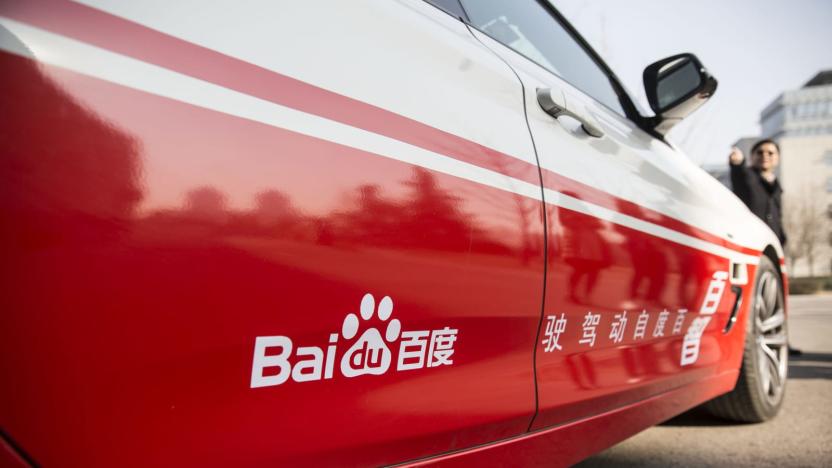
Baidu wants to work with everyone on self-driving tech
Like many big technology companies, Chinese giant Baidu has been working on self-driving cars for a few years now, even investing with Ford in LIDAR sensor company Velodyne. Collaborations between tech firms and carmakers are now commonplace, but after an unsuccessful marriage with BMW, Baidu is seeking new partners -- or rather, all the partners. In a project Baidu calls "Apollo," the company is offering up its whole self-driving platform to the wider industry, from software to reference vehicles, to give the general pursuit of autonomous cars a NOS-like boost.

AI takes the headaches out of transcribing voice recordings
Ask many interviewers about their least favorite part of the job and they'll almost always point to transcription. It can take hours to turn even a short chat into text, which is a serious pain for everyone from reporters to police interrogators. China tech giant Baidu may have a smarter approach: artificial intelligence. It just released a beta for SwiftScribe, a transcription app that uses a neural network to make sense of speech. The software not only promises relatively accurate speech-to-text processing thanks to training on "thousands of hours" of recordings, but learns from edits. It should account more for how people actually speak, saving you from making a load of edits.

Baidu's Deep Voice can quickly synthesize realistic human speech
Baidu has been quietly working on other projects besides self-driving cars at its AI center in Silicon Valley, and now it has revealed one of them to MIT's Technology Review. Apparently, the Chinese tech titan has created a text-to-speech system called Deep Voice that's faster and more efficient than Google's WaveNet. The company says Deep Voice can be trained to speak in just a few hours with little to no human interaction. And since Baidu can control how it speaks to convey different emotions, it can (quickly) synthesize speech that sounds pretty natural and realistic.

Baidu hires former Microsoft executive VP as it focuses on AI
China's most popular internet search company has picked up a new group president and COO. Previously at Microsoft and Yahoo (and an authority in artificial intelligence), Dr. Qi Lu might be just what the company needs. Baidu's profits have slipped from parts of its internet business and Lu will help lead Baidu's efforts in AI, which already include a smartphone assistant and self-driving cars. The company is already using AI to match advertisers with customers online, but has find new ways to grow after new advertising regulations in China hit its ad business hard.
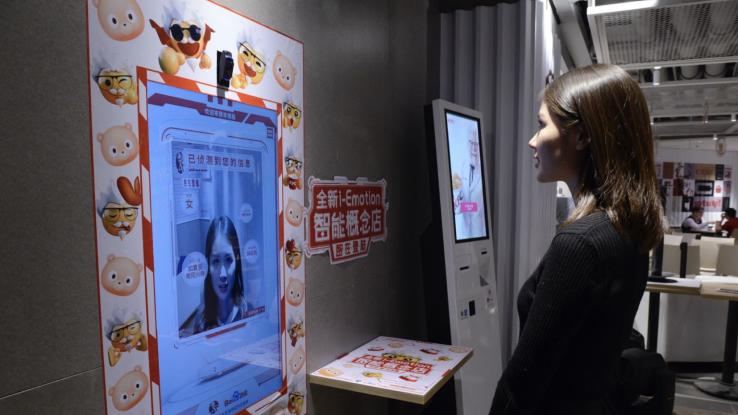
KFC's latest weird tech suggests an order based on your face
KFC is no stranger to getting funky in order to sell its chicken but this one is really out there. The company's Chinese division is partnering with Baidu to create a smart restaurant which will recommend meals based on the customer's looks. Specifically, the restaurant's ordering kiosks, which are powered by Baidu's computer vision systems, will look at the customer's age, gender and facial expressions to make educated guesses as to what they might be in the mood for. A guy in his 20s, for example, is far more likely to order a big meal with a large soda for lunch than, say, a 75 year-old granny who walks in at 8am. These are just suggestions of course, it's not like you have to eat what it recommends (yet) but if you're a regular, the kiosks will remember your previous order and recommend that as well. Don't get weird about that last bit, it's no different than the bartender at your local pub remembering your drink order from last time. For now, the facial recognition kiosks are confined to the single smart restaurant, located in Beijing, but if it's a hit with the public, the technology will hopefully spread.

BMW and Baidu end self-driving car partnership
Last June, BMW and Baidu announced they would work together on self-driving car technology. Reuters reports that the automaker and Chinese tech company are now ending the joint research project. Baidu had been using BMW 3 sedans to perform on-road tests in China and had plans to so the same in the US.











